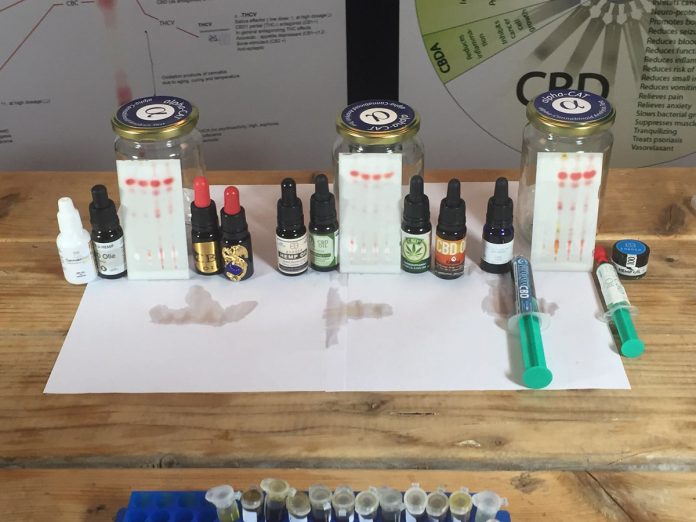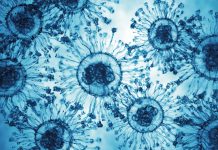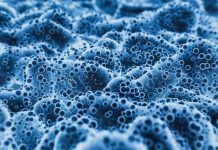AlphaCAT (Cannabinoid Analysis Test) takes the first step to regulation and quality control for the medical cannabis industry, as this profile by the firm’s Sebastien Beguerie sheds light on
AlphaCAT (Cannabinoid Analysis Test) is based on the principles of chromatography analytics. Chromatography means in Greek “marked colour” as laboratory techniques to separate a complex mixture. In the world of herbal remedies by the use of the phyto-therapy producer and physicians, they need to understand the difference between the chemical compound inside each herb. Because medicinal plant contains more than one active compound, it is essential for the botanist and manufacturer to know the exact composition of these plants.
The cannabis plant is now becoming recognised for its medicinal value through its active compound called “cannabinoids”. Today, it has been discovered that there are more than 500 compounds inside cannabis with 110 cannabinoids. These cannabinoids can be identified as family clusters with these six mains cannabinoids:
- Cannabidiol (CBD).
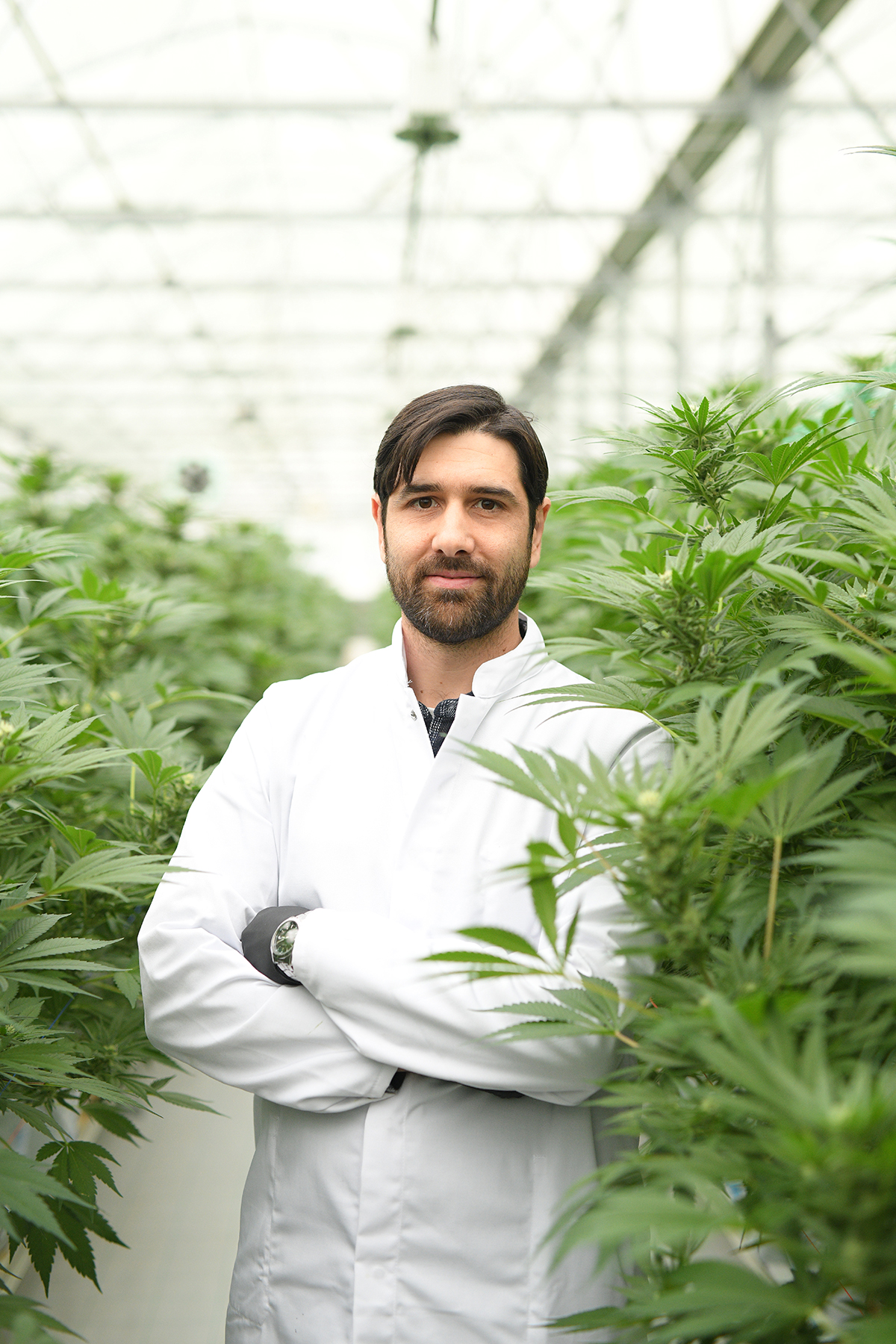
Sebastien Beguerie, AlphaCAT Founder in one of his consulting greenhouse’s client - Cannabiniol (CBN).
- Delta-9-Tetrahydrocannabinol (THC).
- Tetrahydrocannabivarine (THCV).
- Cannabigerol (CBG).
- Cannabichromen (CBC).
Each of these cannabinoids will produce a different effect according to their pharmacognosy. Therefore, each cannabis chemo-type can have a different therapeutical value. In that regard, knowing the phytochemical composition of cannabis dried flower and its derivate plays a major role in preparing and delivering the standard dosage of phytocannabinoid to patients.
The cannabis plant belongs to the smallest family in the plant kingdom, called the “Cannabinaceae”. In this family, there are only two plants, cannabis and hop that are among the most used plant on earth. From the Cannabis sativa L variety, it has evolved into numerous biotype cultivar existing in almost all latitudes on the planet. These biotype cultivars from India, Africa, to South America, have developed in adaptation to their environment a large number of compounds to allow its survival in hostile location. Nowadays, breeding has taken place in crossing all these different cultivars by creating new chemovars with unique cannabinoids profile for the medicinal industry.
In order for producer, manufacturer and physicians to create the best cure for patients, they need to be able to assess the phytochemical composition of cannabis and their cannabinoid profile. The methods used to analyse these divers’ molecules are done using chromatography techniques. It exists as three main chromatography techniques done by gas, liquid or thin-layer separation. The gas and liquid chromatography required expensive machinery with the need of high-educated post-graduate staff. These machines can cost more than a prestigious luxury car. On the other hand, thin-layer chromatography (TLC) is inexpensive and easy to use by anyone who can follow a cooking recipe.
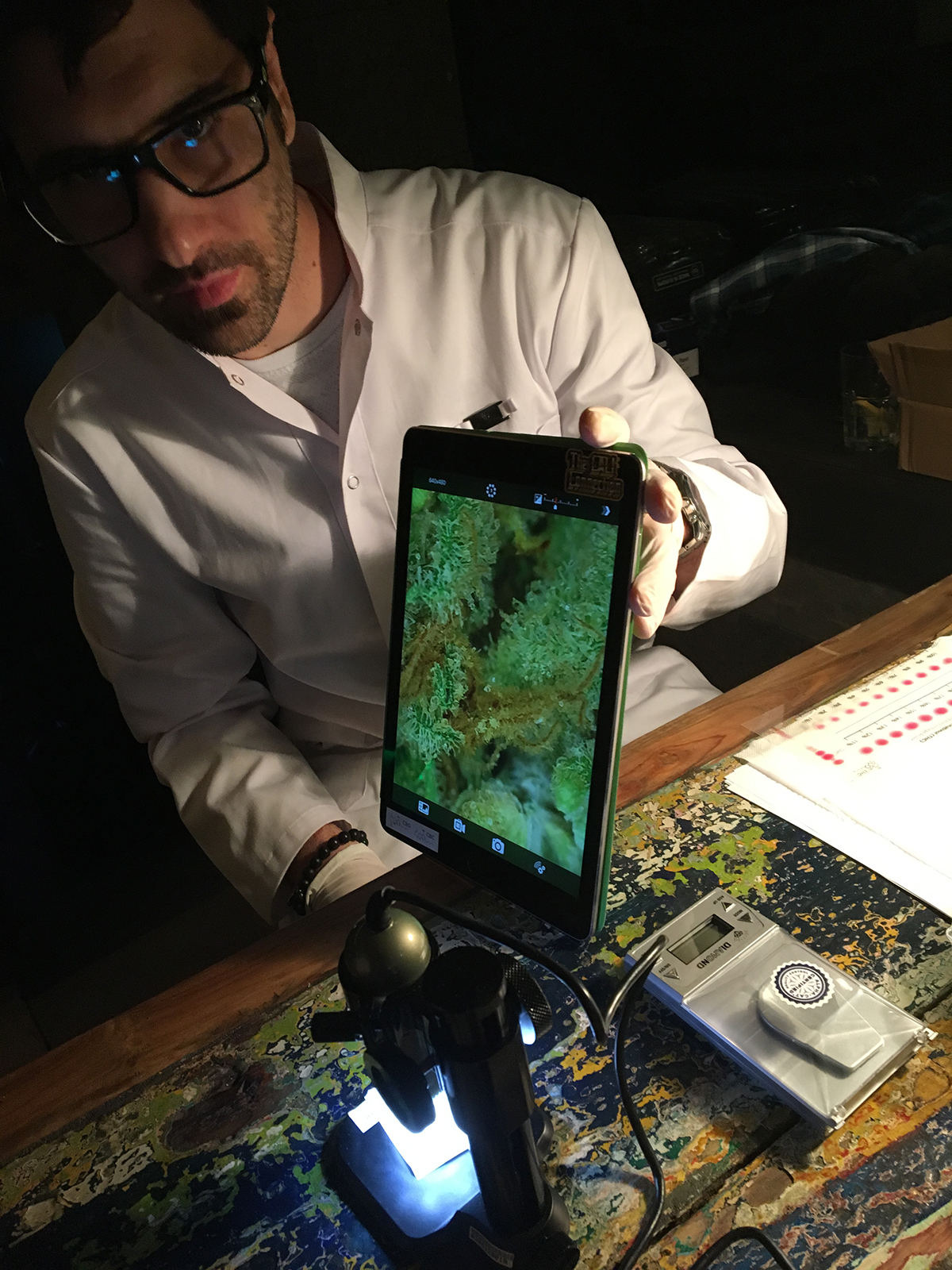
In the pharmaceutical practices for production of cannabinoids, quality control checks have to occur in every stage of the manufacturing process to achieve the highest standards for production in order to obtain a robust and consistent product. The manufacturer needs to guarantee from every batch produced the cannabinoid content, the uniformity, chemical and physical stability, with its biological availability.
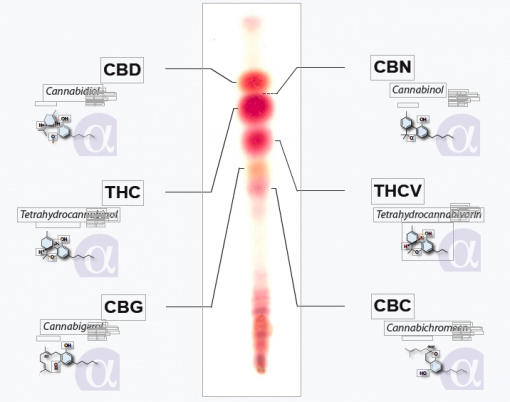
Official document guidelines regarding quality control often recommend more than one analytical method to be used. It is always recommended to seek for more testing methods to verify one from another to assure reproducibility with qualitative and quantitative assessment of the phytochemicals present. For cannabis and its cannabinoid analysis, different methods are being recommended by the United Nation on Drugs and Crimes (UNODC) report from 2009. In this report, a large section is dedicated to the TLC method as a quick way for law enforcement and forensic investigation to address the cannabinoid profile of cannabis seize during police control.
In this sense, in 1980, a scientific publication order by UNODC and conducted by Baker et al showed the difference in cannabinoid profile of cannabis coming from different parts of the world from South America, Africa, India and Asia. For each of the continent, it was possible to identify its origin from their cannabinoid ratio with THC/THCV, CBD/THC, CBG and CBC. They concluded that TLC: “TLC examination is a valuable indicator of the country of origin where there are no characteristic physical features, for instance, in the analysis of small amounts of material or in the case of liquid cannabis.”
Since 2016, in Switzerland and in Europe, retail shops have started to commercialise cannabis flowers with less than 0.2% THC with a high concentration of CBD and other derivate CBD products. Due to the THC content below the legal limit, it cannot be considered as a narcotic substance. But their physical aspect looks the same as narcotic cannabis with THC above 0,2%. That’s why it is becoming crucial for law enforcement to have a robust and accurate analytical method to run cannabinoid profile of cannabis flower taken from the street to know whether it is an illegal or legal cannabis flower. The AlphaCAT TLC test kit can assist the authority to make sure their investigations are made on illegal trafficking and not on legal goods sold by legitimate registered companies. The TLC AlphaCAT method can test for cannabinoids in dry flower, in Haschich, in extract, in oil and other forms of secondary products.
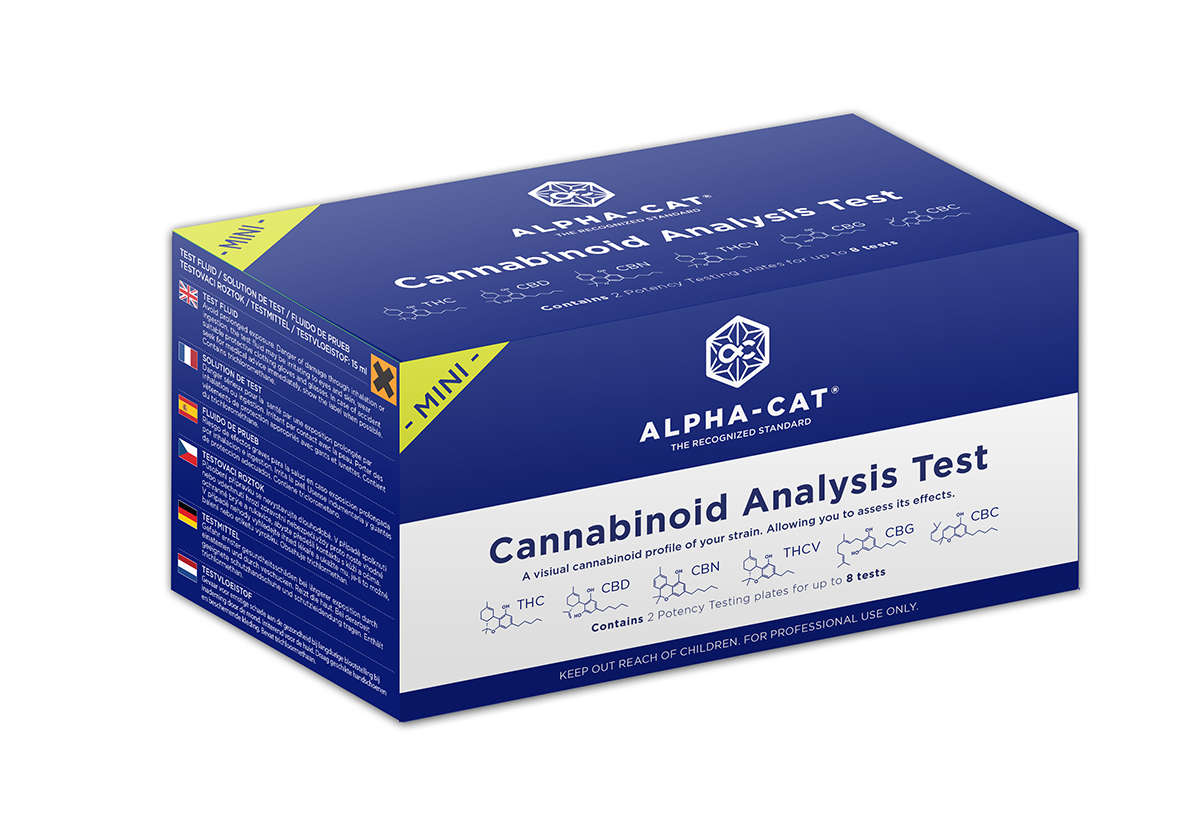
From the herbalist approach of using medicinal plant given to a patient in a phyto-therapy treatment guideline called ‘Monograph” are being published for every pant belonging to the pharmacopaea. Monograph is written to guide the manufacturer and pharmacist to know which part of the plant can be used, how it should be grown, harvested and prepared in respect to quality control for final galenic preparation.
Until six years ago there was no modern monograph for medicinal cannabis. In 2013, the American Herbal Pharmacopaea (AHP), one of the most well-known institutes in monograph publications published an official monograph on medical cannabis written by an expert in the field, like Professor Mahmoud ElSohly and Professor Ethan Russo. In their section dedicated to analytical, the first chapter is about TLC where they describe how it suits for the identification of primary cannabinoids, as well as to distinguish between THC-dominant, CBD-dominant and fibre type.
The AlphaCAT TLC method is innovative as the first commercialise kit to be able to qualify and quantify cannabinoid content in cannabis and its derivate. It is done in five steps and takes half an hour to perform. It is ideal for pharmacist and herbalist to be used for their herbal cannabis preparation to know the dosing of their final product. It is a great tool for the manufacturer to do their in-house quality control to assess their hazardous analytical control point for cannabinoid check in order to produce a standardised product. The AlphaCAT TLC kit can also be used by a governmental institute dealing with cannabis regulation to equip their law enforcement body to make the difference between narcotic and non-narcotic cannabis. In a regulated cannabis market, it is a great kit to know the truth about product labelling and make sure the dosage they claim is real in their product.
To conclude, the AlphaCAT TLC test kit for cannabinoid analysis opens the path for the first step to regulation and quality control for the government, a licensed producer, physicians and patients to make sure of the safety and quality of cannabis product being consumed in this new emerging industry of medical cannabis.
Please note: This is a commercial profile
Sebastien Beguerie
Alpha-Cat.org
Tel: +420 (0)7777 28845

